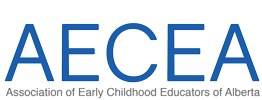On January 30, 2025, the Ministry of Jobs, Economy, and Trade (JET) hosted a town hall to announce changes to Alberta’s early learning and child care funding approach.
Key Changes Effective April 1, 2025:
- A flat monthly fee per child will be implemented for licensed daycares and family day homes, applying to children from birth to kindergarten age.
The child care subsidy program will be eliminated. - Supplemental fees for optional services will be introduced.
This announcement came as a surprise to many stakeholders.
What We've Heard
Over the past few weeks, AECEA has engaged with ministry staff, policymakers, sector leaders, owners/operators, educators, providers, agencies, and associations to assess the impact. While some programs may benefit—especially those that had fees frozen post-COVID and can now increase them—many unintended consequences are emerging.
Impact on Low-Income Families
Families previously receiving subsidies now face significantly higher fees, affecting up to 68,900 children and their families. The shift to a flat rate places a disproportionate burden on the most vulnerable.
Enrollment Shifts
Early childhood educators (ECEs) worry about job losses or reduced hours as low-income families withdraw due to affordability concerns.
Workforce Stability
Programs may face challenging operational decisions regarding the employment of ECE Level 3 positions, as well as applying competitive wages, offering pension and benefits plans, or fee reductions in child care fees for staff. Many ECEs may struggle to afford child care themselves, adding further financial strain to an already underpaid workforce.
Family child care educators, who were once able to establish fees based on their certification, experience, and programming, may no longer do so. They now face challenging business decisions due to this new funding approach.
Workforce stability is ensured through consistent compensation and supportive workplace conditions. When the essential elements that promote workforce stability are threatened, the certainty of that stability becomes questionable.
Program Quality and Operational Challenges
Programs may encounter challenging decisions regarding the elimination of essential quality-enhancing curricular components, such as nutrition programs, field trips, cultural experiences, specialized support services, and professional development for staff, due to financial constraints. Basic services that should be provided in all early learning programs are now compromised.
Moral and Ethical Injury
Early childhood educators are highly motivated to work with children and positively influence their development. However, they now face moral and ethical dilemmas regarding the experiences they can provide children. There are increasing reports of ECEs purchasing food and resources to meet the needs of the children in their care, often out of their own pockets.
The Canada-Alberta agreement aimed to address concerns in early learning and child care (ELCC) regarding affordability, accessibility, inclusion, and quality. While the provincial announcement makes ELCC affordable for some families, it does not extend this benefit to all. Additionally, it fails to address issues related to accessibility, quality, or staff retention.
Workforce Support
We were assured that there will be no changes to professional development funding, release time funding, or wage enhancements. This also means there will be no increases. We are grateful for the funding provided to early childhood educators in Alberta, and we remain hopeful that it will continue.
We will continue to advocate for a workforce strategy that reinforces ECEs as the cornerstone of a high-quality early learning and child care system. Our goal is to establish a system that guarantees ECEs are well-compensated, well-qualified, and well-supported. They are the backbone of the sector and should be the basis for all decision-making. Unfortunately, this is not currently the case.
Membership enables us to continue our efforts to amplify your concerns to policymakers. Although a cohesive workforce strategy does not seem to be a priority at the moment, we remain hopeful that by raising our voices together, we will be heard. We could potentially be 29,000 strong.
If you are not an AECEA member, consider joining us! Further information on AECEA membership can be found here.
We urge the ministry to actively engage with all key stakeholders and develop a clear, actionable workforce strategy to support ECEs and their programs.
AECEA remains dedicated to collaborating with stakeholders to ensure that policy decisions accurately reflect the realities faced by individuals on the ground.
How You Can Help
Share Your Story
Let us know how this announcement is affecting you by clicking the button below.
Tell us:
- Has this announcement made your job more difficult?
- Has it made life more expensive for you?
We meet with ministry staff every six weeks—your feedback helps us advocate on your behalf.
Advocate for Change
- Email your MLA, Minister Jones, and Premier Smith to share how these changes impact you:
- Find your MLA
- Contact Minister Jones: JET.minister@gov.ab.ca
- Contact Premier Danielle Smith: premier@gov.ab.ca
- Contact the Opposition:
- Diana Batten, MLA for Calgary-Acadia: Calgary.acadia@assembly.ab.ca
- Rakhi Pancholi, MLA for Edmonton-Whitemud: edmonton.whitemud@assembly.ab.ca
- Naheed Nenshi, Leader of the Alberta NDP: naheed@nenshi.ca
